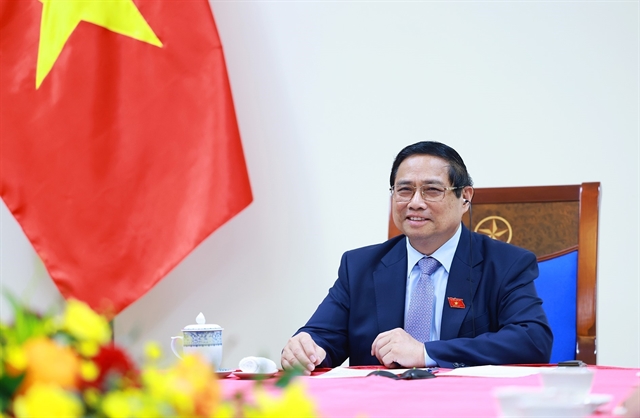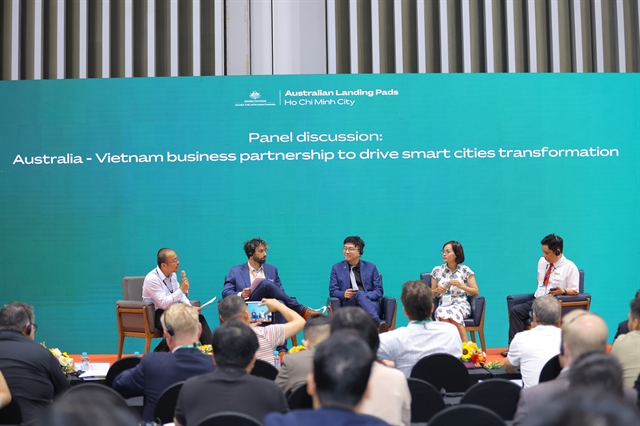 Politics & Law
Politics & Law

 |
| Speakers at a panel discussion during the forum. — Photo courtesy of Landing Pad |
HCM CITY — Vietnamese and Australian businesses and policymakers are joining forces to develop next-generation smart cities, as showcased at Thursday's Australia-Vietnam Smart Cities Business Forum 2025.
The event, held at the Saigon Exhibition and Convention Centre, demonstrated both nations' commitment to developing sustainable smart cities while boosting digital economy ties.
Building on insights from April's Smart City Focus Group - Vietnam Market Deep-Dive, the forum brought together government and industry leaders to explore collaborations in renewable energy, AI infrastructure, cybersecurity and intelligent transport systems, leveraging Australia's tech expertise and Việt Nam's urbanisation momentum.
"The digital economy is a priority for enhancing two-way trade and investment. Austrade Vietnam’s Landing Pad initiative is driving Australian technologies to the region, supporting digital transformation, and fostering partnerships with Vietnamese stakeholders to co-develop solutions tailored to local needs," said Jonathan Saw, Austrade's Trade and Investment Commissioner to Việt Nam.
The timing couldn't be more crucial for Việt Nam, where 48 out of 63 provinces have already initiated smart city programmes. However, significant challenges remain in implementing comprehensive solutions.
Việt Nam faces major urban challenges – rapid urbanisation, pollution, infrastructure gaps and an ageing population – requiring smarter resource management and planning.
The focus group led by Austrade, in collaboration with Startup Vietnam Foundation and Dear Our Community, brought to light several challenges in Việt Nam’s smart city journey, such as a heavy reliance on technology instead of residents' real needs and weak long-term planning, which leads to disjointed solutions.
Data privacy also remains a big concern, even with new protection laws. Internet and power systems are unreliable, especially for growing tech needs. High costs and unclear regulations for AI and data make progress slow. These issues must be solved for smart cities to succeed.
Despite these issues, Việt Nam's smart city market offers huge growth potential.
The market could grow from US$1.36 trillion in 2024 to $3.84 trillion by 2029. Government policies strongly support digital transformation. The focus group highlighted opportunities in sectors like AI, cybersecurity, smart transport, telemedicine and clean energy – areas where Australia can help.
At the forum, Australian companies showcased innovative solutions that could help address Việt Nam's urban challenges.
A delegation of 13 firms presented cutting-edge technologies in energy optimisation, smart traffic management and green building design. Their proposals highlighted how Australia's expertise in 5G networks, renewable energy systems and digital governance could complement Việt Nam's dynamic urban growth.
Key to successful implementation will be establishing effective public-private partnerships that balance innovation with regulation.
Experts stressed the importance of developing supportive policy frameworks and people-centric standards to guide smart city development while leaving room for private sector innovation.
The Government's role should be to set standards and create enabling conditions, while businesses and start-ups drive technological solutions, a representative from Vietnam-German University said during panel discussions.
Looking ahead, participants agreed that sustained collaboration will be essential. The Australian business delegation plans follow-up meetings with Vietnamese counterparts this week to explore specific projects, while government representatives discussed policy coordination to facilitate future partnerships. — VNS




